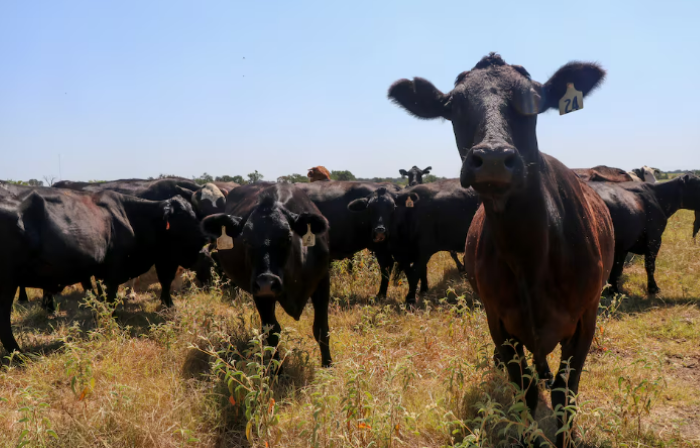
Bird Flu in Dairy Cows: What You Need to Know
Recent reports from Texas officials have confirmed a farm worker’s positive test for H5N1, commonly known as bird flu, which has also affected dairy cows in several states including Kansas, New Mexico, Michigan, and Idaho. This marks the first instance of the virus infecting cattle, prompting concerns about potential risks to humans.
Understanding the Concerns
The occurrence in Texas is only the second time bird flu has been identified in humans in the United States, with the initial case reported in Colorado in 2022. In both instances, the infections resulted in mild symptoms.
The infected farm worker in Texas exhibited conjunctivitis, commonly known as pink eye, as the sole symptom and is undergoing treatment with Tamiflu, typically used to manage human influenza.
These infections stem from the same subtype of bird flu that has been affecting wild birds and poultry globally for over two years, with reports of several mammal species being affected after consuming infected birds.
Assessing the Risks
While some outbreaks of avian influenza have led to severe or fatal infections in individuals closely interacting with wild birds or poultry, the current strain, H5N1, does not readily transmit among humans. Nonetheless, experts remain vigilant for any changes that could facilitate human transmission and potentially trigger a pandemic.
Dr. Thomas Inglesby from the Johns Hopkins Center for Health Security emphasized that while the Texas case doesn’t significantly alter the overall pandemic risk, each new case warrants thorough investigation to rule out person-to-person transmission.
Regarding the food supply, the U.S. Department of Agriculture assures that the risk of contaminated milk reaching consumers is minimal due to pasteurization effectively eliminating viruses. Additionally, no infected beef cattle have been reported thus far.
Vaccination and Preparedness
The U.S. maintains a stockpile of bird flu vaccines tailored to the circulating strains, along with antiviral medications for treating human infections. However, scaling up production in the event of a major epidemic or pandemic would be a significant undertaking.
Flu vaccine manufacturers such as Sanofi, GlaxoSmithKline, and CSL Seqirus have affirmed their readiness to develop avian flu vaccines as needed, closely monitoring the situation for any developments.
Transmission and Spread Among Cattle
Virologists, including Richard Webby from St. Jude’s Children’s Research Hospital, indicate uncertainty regarding how the cows contracted H5N1, the extent of the infection, and the mode of spread to other herds. However, there is evidence suggesting potential cow-to-cow transmission.
